HIGH TECH SAFETY in the “new normal”: our 3 main components to minimize germs
Dental offices are high traffic spaces: our regular, daily interactions with patients can introduce bacterial, viral, and fungal infections into the air. The indoor air within dental offices contains unhealthy and often infectious airborne pollutants, but we believe technology keeps our patients happier and healthier. Here are three major ways we use cleaning technology to ensure our patients and staff members are as protected as possible:
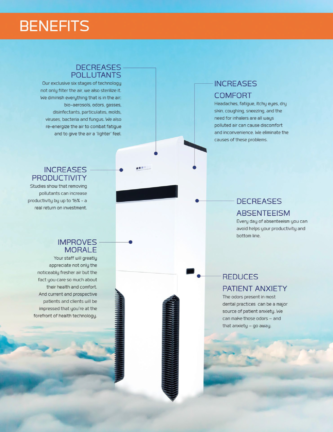
SURGICALLY CLEAN AIR FILTRATION: it doesn’t just filter germs, it destroys them.
Microbial air pollution is a real health issue and this is where technology makes us a better, healthier practice. Air purification systems can play a role in significantly reducing transmittable bio-aerosols Dental procedures inadvertently generate aerosols, containing organisms and debris from each patient’s oral activity, and these can be harmful to everyone present in the clinic. Air filters result in the significant reduction of viable particles in the air. World-class medical-grade air purifiers like our Surgically Clean Air system remove chemicals, toxins, germs, and odors, but most importantly, they kill airborne viruses, to help reduce the spread of illness.
By using a six-stage purification system of filters and UV lights, we ensure that the air you breathe is clean, healthy, and odor-free. Stages 1 and 2 remove large and microscopic air contaminates. Stage 3 absorbs unhealthy odors, chemicals, and gases. Stages 4 and 5 kill bacteria and viruses, while stage 6 re-energizes the clean air before circulating it back into the room.
We invested in Surgically Clean Air systems within our office because we believe that paying attention to the quality and purity of the air in our office creates a win/win situation for our patients and team members. Learn more about what Surgically Clean Air is doing for other practices HERE.
ISOLITE SYSTEMS: Mouthpieces matter
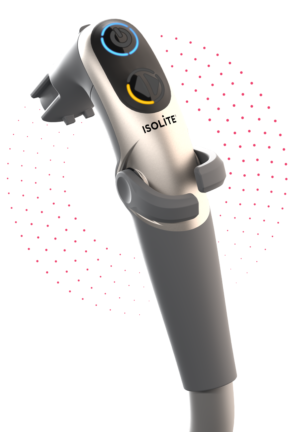
“Isolation”, in dental terms, means keeping the procedure area (your mouth) safe and contained. Proper dental isolation is important to dental procedures because it minimizes contamination. This is traditionally done with dental dams and other tools for suction, but we use Isolite systems with our patients. Isolite technology is soft and comfortable, but provides added safety measures during your dental procedure, protecting you foreign body aspiration and shielding the tongue and cheek from injury by the handpiece or other dental instruments.
VIKING PURE CLEANING SOLUTIONS: Redefining a clean environment
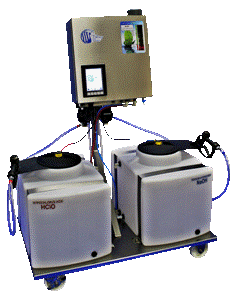
As an added step in our office safety, we are soon implementing a Viking Technology Cleaning System within the practice. Viking Pure’s patented e-water is a nontoxic solution that has the power to redefine our idea of a clean environment. The chemicals that our society has come to rely on are harmful to our health, our wallet and our planet. They are also ineffective at killing the bacteria, viruses and superbugs that are plaguing our homes and businesses.
Viking Pure Solutions are not only more powerful than chemicals, but our patent-protected systems have revolutionized the very process of generating natural cleaning solutions. Electrolyzed Water is the result of a process called electrolysis: salt is electrically separated into its two main ions, sodium and chloride. Those two ions are then mixed into separate streams of fresh water, producing two solutions: Hypochlorous Acid (PureSan) and Sodium Hydroxide (PureClean). These two solutions are safer, cheaper and most importantly, infinitely more powerful than the harmful chemicals most commonly used as cleaning agents today.
BOTTOM LINE: HEALTHIER AIR, HEALTHIER PATIENTS + STAFF
After a very long 2 months, we look forward to bringing our patients back into the office for treatment. Fortunately, many of the new safety precautions recommended to dentists have been in place in our office long before COVID-19. We look forward to seeing you.

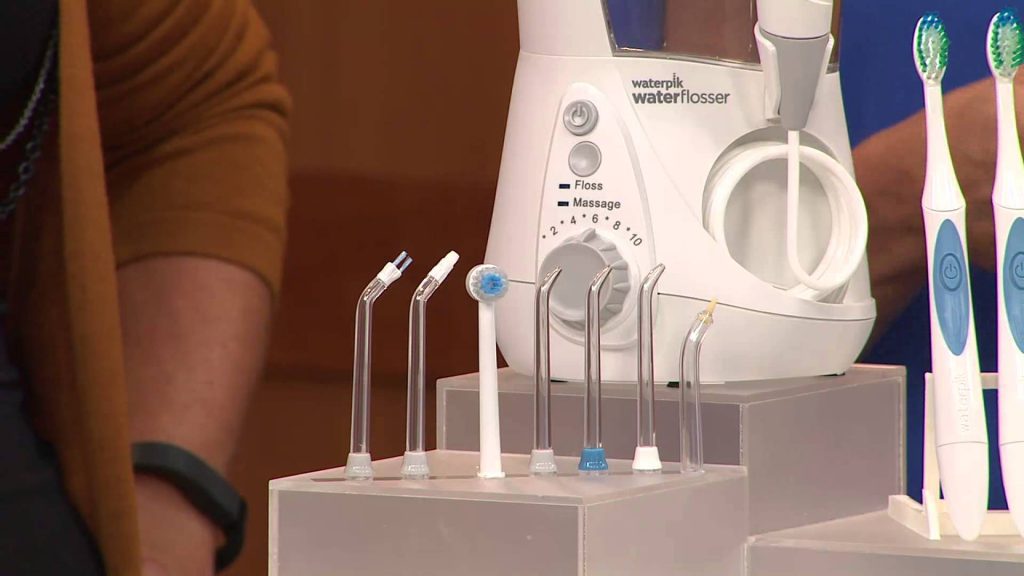
 Let’s be real here: We know that visiting the dentist can be something that makes many patients nervous. Research shows that 20% of individuals who experience severe anxiety will only go to the dentist if absolutely necessary.
However, regular dental checkups are vital not only because they keep your teeth and gums healthy, but they can also help protect and maintain your overall health and well-being.
Downtown Dental is sensitive to the fears and concerns of our Nashville dental patients and we strive to create a comfortable environment for all patients, no matter their personal concerns. If the idea of visiting the dentist gives you anxiety, consider a few reasons why Dr. Clark's office can help ease your fears:
We listen.
We invite you to express your worries from the very first moment you call to book an appointment. Our team makes your concerns our concerns. Whether you’ve had a bad experience in the past, are afraid of needles, or are apprehensive about any specific part of your appointment, let’s discuss it. We promise to listen carefully to get a full understanding of how you feel.
Let’s be real here: We know that visiting the dentist can be something that makes many patients nervous. Research shows that 20% of individuals who experience severe anxiety will only go to the dentist if absolutely necessary.
However, regular dental checkups are vital not only because they keep your teeth and gums healthy, but they can also help protect and maintain your overall health and well-being.
Downtown Dental is sensitive to the fears and concerns of our Nashville dental patients and we strive to create a comfortable environment for all patients, no matter their personal concerns. If the idea of visiting the dentist gives you anxiety, consider a few reasons why Dr. Clark's office can help ease your fears:
We listen.
We invite you to express your worries from the very first moment you call to book an appointment. Our team makes your concerns our concerns. Whether you’ve had a bad experience in the past, are afraid of needles, or are apprehensive about any specific part of your appointment, let’s discuss it. We promise to listen carefully to get a full understanding of how you feel.
 We give you all the information and discuss solutions.
Dr. Clark and our team will share with you a full range of options and information so you can make an educated decision about your personal treatment. We will not rush you into a decision you’re not comfortable with.
Additionally, we offer safe, effective dental sedation that has helped other patients like you overcome their dental fears. There are several options available; our team will be happy to discuss the solution that’s right for you and your treatment.
We give you all the information and discuss solutions.
Dr. Clark and our team will share with you a full range of options and information so you can make an educated decision about your personal treatment. We will not rush you into a decision you’re not comfortable with.
Additionally, we offer safe, effective dental sedation that has helped other patients like you overcome their dental fears. There are several options available; our team will be happy to discuss the solution that’s right for you and your treatment.

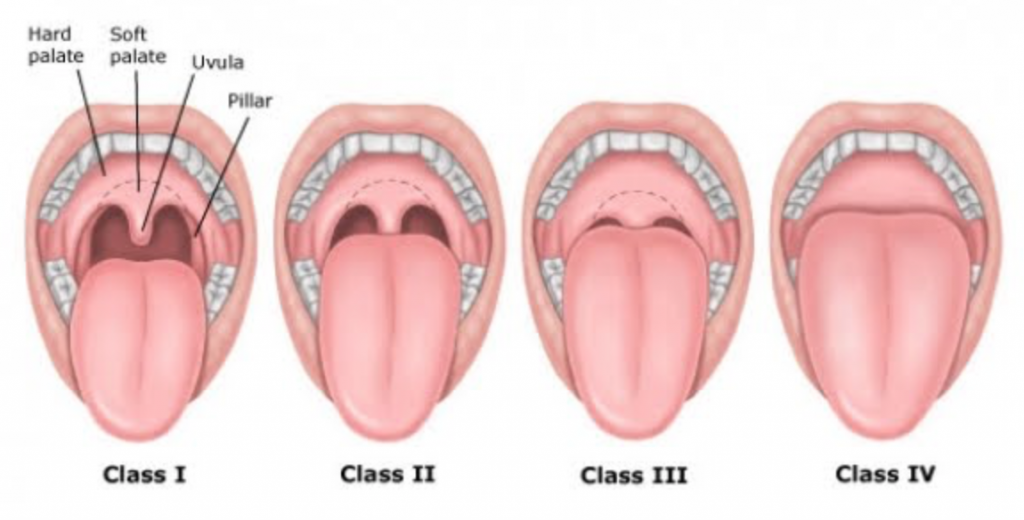
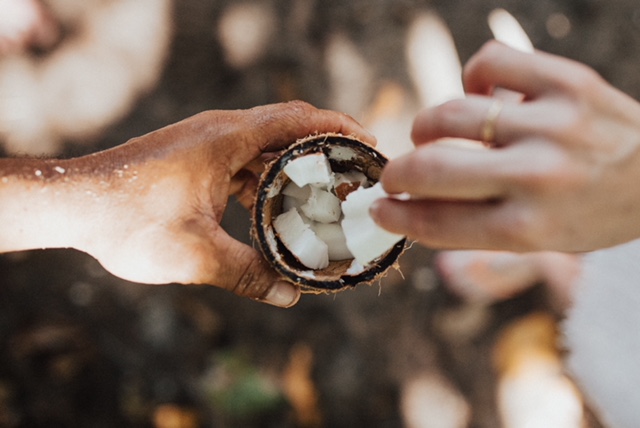 Our patients often ask us about oil pulling, or ‘swishing’: it’s an alternative treatment purported to rid your body of unwanted bacteria through the process of swishing vegetable oil (mostly coconut oil) around your mouth. Those who swear by the process claim that it whitens teeth, fights bad breath, and gets rid of bacteria stuck in hard to reach places.
We totally support alternative wellness, even when it comes to your teeth. Understand that oil pulling may sound like a great alternative oral care solution, but it can never replace brushing and flossing. Here's some real talk about oil pulling and how we think it can be beneficial:
What is oil pulling?
The process of oil pulling involves putting a tablespoon of liquid vegetable oil, often coconut oil, into your mouth and swishing it around for 20 minutes before spitting it out and brushing it away with a toothbrush and toothpaste. The process gets its name partly from the pushing and pulling of the oil through teeth and mouth, and partly from the way the oil is supposed to pull icky stuff out of your mouth tissues.
The longer you push and pull the oil through your mouth, the more microbes are pulled free. The oil needs to be swished around long enough for it to turn a milky white, which indicates that the bacteria has been "pulled" off. After roughly 20 minutes the solution is filled with bacteria, viruses and other organisms; at this point, the person spits out the oil and rinses thoroughly with water.
How does oil pulling work?
The number of bacteria found in our mouths is usually between 1,000 and 10,000 on each individual tooth. It may sound like a lot, but these guys are tiny! Each of these bacteria have a fatty outer coating, and when they come into contact with another fatty substance, such as oil, they have a tendency to stick to that substance. Since liquid oil has the ability to get into hard to reach areas of the mouth that a toothbrush would miss, it is thought to be able to pick up bacteria that may have otherwise stayed hidden.
People that “oil pull” state that it has helped whiten their teeth, alleviate halitosis, and even reduce gingivitis. In many cases, people also claim that it helps “prevent” cavities, as well as relieve gum and tooth sensitivity.
What we believe
There is clear evidence that many diseases and conditions are influenced by the mouth’s ecology and bacteria, and we understand the topic of oil pulling is valid when patients wonder why oil pulling has been encouraged by dental professionals as a supplemental therapy for patients, especially if we are in the business of “preventing” oral health problems.
We support holistic approaches to your oral care. You just have to be smart about it and consider your individual dental health: there are certain types of infections that oil pulling will not resolve, and you have to be aggressive about treating those. It won’t take away raging gum infections or cavities. Oil pulling may remove bacteria, but it doesn't kill bacteria, and that's a big difference.
BOTTOM LINE
If oil pulling is used alone, without regular brushing and flossing, then no, it is not an effective way to keep your mouth healthy. It will not heal existing decay. However, when used in conjunction with proper daily brushing and flossing habits as a preventive measure, it may improve bad breath, help to decrease staining, and benefit in other ways. If you have dry mouth issues, we absolutely believe pre-bedtime oil pulling can be helpful.
Our patients often ask us about oil pulling, or ‘swishing’: it’s an alternative treatment purported to rid your body of unwanted bacteria through the process of swishing vegetable oil (mostly coconut oil) around your mouth. Those who swear by the process claim that it whitens teeth, fights bad breath, and gets rid of bacteria stuck in hard to reach places.
We totally support alternative wellness, even when it comes to your teeth. Understand that oil pulling may sound like a great alternative oral care solution, but it can never replace brushing and flossing. Here's some real talk about oil pulling and how we think it can be beneficial:
What is oil pulling?
The process of oil pulling involves putting a tablespoon of liquid vegetable oil, often coconut oil, into your mouth and swishing it around for 20 minutes before spitting it out and brushing it away with a toothbrush and toothpaste. The process gets its name partly from the pushing and pulling of the oil through teeth and mouth, and partly from the way the oil is supposed to pull icky stuff out of your mouth tissues.
The longer you push and pull the oil through your mouth, the more microbes are pulled free. The oil needs to be swished around long enough for it to turn a milky white, which indicates that the bacteria has been "pulled" off. After roughly 20 minutes the solution is filled with bacteria, viruses and other organisms; at this point, the person spits out the oil and rinses thoroughly with water.
How does oil pulling work?
The number of bacteria found in our mouths is usually between 1,000 and 10,000 on each individual tooth. It may sound like a lot, but these guys are tiny! Each of these bacteria have a fatty outer coating, and when they come into contact with another fatty substance, such as oil, they have a tendency to stick to that substance. Since liquid oil has the ability to get into hard to reach areas of the mouth that a toothbrush would miss, it is thought to be able to pick up bacteria that may have otherwise stayed hidden.
People that “oil pull” state that it has helped whiten their teeth, alleviate halitosis, and even reduce gingivitis. In many cases, people also claim that it helps “prevent” cavities, as well as relieve gum and tooth sensitivity.
What we believe
There is clear evidence that many diseases and conditions are influenced by the mouth’s ecology and bacteria, and we understand the topic of oil pulling is valid when patients wonder why oil pulling has been encouraged by dental professionals as a supplemental therapy for patients, especially if we are in the business of “preventing” oral health problems.
We support holistic approaches to your oral care. You just have to be smart about it and consider your individual dental health: there are certain types of infections that oil pulling will not resolve, and you have to be aggressive about treating those. It won’t take away raging gum infections or cavities. Oil pulling may remove bacteria, but it doesn't kill bacteria, and that's a big difference.
BOTTOM LINE
If oil pulling is used alone, without regular brushing and flossing, then no, it is not an effective way to keep your mouth healthy. It will not heal existing decay. However, when used in conjunction with proper daily brushing and flossing habits as a preventive measure, it may improve bad breath, help to decrease staining, and benefit in other ways. If you have dry mouth issues, we absolutely believe pre-bedtime oil pulling can be helpful.
 Whether it's echinacea or aspirin, always tell your dentist about any medications and supplements you are taking.
Everything you ingest, even vitamins, causes a certain reaction. If your dentist doesn’t know what drugs or supplements you have taken, he or she will not know how to protect you from possible substance interactions. This is particularly important if you are undergoing any surgical treatment.
Conventional versus herbal
Although many conventional (prescription and over-the-counter) medications sold in the United States are derived from plants, they are different from herbal medications. Conventional drugs, which must be approved for use by the Food and Drug Administration, are based on an active ingredient or chemical that manufacturers synthesize when they develop the drug. In other words, a conventional drug is based on a chemical that is made in a laboratory, even though it may have originally come from a plant.
Herbal (also called botanical or alternative) medications are made from natural chemicals extracted from a plant and are produced either in original form (sometimes combined with other herbal extracts) or refined. When an herbal medication is refined, the essential extract is taken out of the plant source, concentrated and then added back to make the original herbal medication more potent.
Combinations to avoid
Even seemingly innocuous herbal and vitamin supplements can have serious side effects for a few dental patients. Here are some combinations to be aware of:
Ginkgo biloba and vitamin E can be dangerous when taken with aspirin because they each can act as blood thinners. The combination may cause difficulties in blood clotting, which could be serious for patients undergoing surgery.
Taking high dosages of vitamins before undergoing anesthesia can also cause concern. In particular, vitamin C, often taken in high dosages for cancer treatment, can weaken the efficiency of anesthesia, among other problems.
Calming supplements, such as Kava Kava or St. John's Wort, can strengthen the effects of anesthesia.
What your dentist can do
Always provide your dentist with a complete medical history, including any herbal medication and conventional drugs you are taking.
Some patients who take alternative medicines are afraid the dentist will not respect their decision to take an herbal medication and will tell them to stop taking it; however, as herbal medications become more popular, many dentists are beginning to use them in their practices. Your dentist might even have an alternative, herbal solution for you.
If an herbal medication could interfere with your dental treatment, your dentist may ask you to stop taking the medication until the treatment is complete. The dentist also may be able to prescribe a different drug for treatment, if one is available.
More:
Whether it's echinacea or aspirin, always tell your dentist about any medications and supplements you are taking.
Everything you ingest, even vitamins, causes a certain reaction. If your dentist doesn’t know what drugs or supplements you have taken, he or she will not know how to protect you from possible substance interactions. This is particularly important if you are undergoing any surgical treatment.
Conventional versus herbal
Although many conventional (prescription and over-the-counter) medications sold in the United States are derived from plants, they are different from herbal medications. Conventional drugs, which must be approved for use by the Food and Drug Administration, are based on an active ingredient or chemical that manufacturers synthesize when they develop the drug. In other words, a conventional drug is based on a chemical that is made in a laboratory, even though it may have originally come from a plant.
Herbal (also called botanical or alternative) medications are made from natural chemicals extracted from a plant and are produced either in original form (sometimes combined with other herbal extracts) or refined. When an herbal medication is refined, the essential extract is taken out of the plant source, concentrated and then added back to make the original herbal medication more potent.
Combinations to avoid
Even seemingly innocuous herbal and vitamin supplements can have serious side effects for a few dental patients. Here are some combinations to be aware of:
Ginkgo biloba and vitamin E can be dangerous when taken with aspirin because they each can act as blood thinners. The combination may cause difficulties in blood clotting, which could be serious for patients undergoing surgery.
Taking high dosages of vitamins before undergoing anesthesia can also cause concern. In particular, vitamin C, often taken in high dosages for cancer treatment, can weaken the efficiency of anesthesia, among other problems.
Calming supplements, such as Kava Kava or St. John's Wort, can strengthen the effects of anesthesia.
What your dentist can do
Always provide your dentist with a complete medical history, including any herbal medication and conventional drugs you are taking.
Some patients who take alternative medicines are afraid the dentist will not respect their decision to take an herbal medication and will tell them to stop taking it; however, as herbal medications become more popular, many dentists are beginning to use them in their practices. Your dentist might even have an alternative, herbal solution for you.
If an herbal medication could interfere with your dental treatment, your dentist may ask you to stop taking the medication until the treatment is complete. The dentist also may be able to prescribe a different drug for treatment, if one is available.
More:  February is National Children's Dental Health Month, and going to the dentist, as we all know, is an important part of keeping our kids' mouths healthy. Still, it typically doesn't rank very high on any parent or child's "want-to-do" list. Being asked to sit still -- often tipped back in a big chair -- with a bright light in their eyes and someone poking around in their mouth can rattle even the calmest of kids.
Whether your child is mildly nervous or seriously afraid, try these strategies to make visiting the dentist a more positive experience:
Opt for a pediatric dentist. You may be happy with your dentist but a practitioner who specializes in treating kids and adolescents brings extra expertise and experience to the table. Pediatric dentists have an extra two to three years of training beyond dental school so they are experts at managing fearful young patients. In addition, their offices are designed to be kid-friendly. Even little things like outfitting kids with sunglasses to combat the brightness of the lights during an exam or having stuffed animals available for squeezing can help calm nerves.
Start early. The AAPD recommends scheduling your child's first visit as soon as teeth begin to appear or by his first birthday. "An excellent way to minimize anxiety for children is to start regular dental visits before a problem like a cavity develops," says Edward H. Moody, Jr., D.D.S., vice president of the American Academy of Pediatric Dentistry and a pediatric dentist in Morristown, Tennessee. The benefits of early and regular dental care are two-fold: Your child gets into the routine of seeing the dentist while he's still young (and possibly less nervous) and staying on top of any potential problems can cut his chances of needing extensive (ouch!) dental treatment down the line.
Do a meet and greet. Did you know that you can bring your child to the dentist's office to get acquainted before the day of their actual checkup? If kids -- or parents -- are nervous we always recommend that they visit the office prior to their appointment so they can meet the staff, see where they'll sit and find out what to expect during the exam. Coming to the dentist can be a bit of an overload. By visiting first kids can get acclimated and come back another day knowing what to expect. It's a great tool that is completely underutilized.
Get a little bit closer. Having a parent's hand to hold or lap to sit on while getting their teeth checked out can be a big comfort for kids.
But don't do too much talking. Yes, it's tempting to maintain a steady stream of chatter in hopes of distracting your child from the exam (I've been guilty of this!), but resist. Letting the dentist do the talking will help him develop a better rapport with your child, say the experts at the American Academy of Pediatric Dentistry. Have questions? Speak to the dentist after he completes the exam.
Consider scheduling your child's appointments with the same hygienist each time. Often that's the pro who handles a large part of a routine checkup. I've found that always having my kids' cleanings done by their favorite hygienist, Denise, makes the appointments go more smoothly. "For younger children or those who tend to be uneasy around new people or things, seeing the same hygienist may be help build a sense of trust and make the visit more relaxing," notes Dr. Moody.
Make the most of distraction. Many dentists' offices have TV screens playing kid-friendly shows or videos mounted near the exam chair to attract kids' attention. Another option: Ask your child's dentist if she can use your smartphone or MP3 player. Popping in the earbuds and listening to favorite tunes or a book on tape can help take the focus off the dental procedure
Forget your own dental demons. If you dread the dentist, your child can pick up on your feelings. Many parents have their own horror stories: when they come in and see that our office is nice and friendly, that can calm the parent down, which makes the child calmer too.
Run interference if siblings or friends tell scary dentist stories. Is the kid next door detailing the time his dentist yanked on his tooth so hard people could hear him scream from blocks away? Put the kibosh on those types of tales as quickly as possible.
Don't say, "Don't worry. It won't hurt." Of course you mean to reassure your child but his mind is going to zero in on the word hurt. Checkups and 90 percent of first visits are nearly always pain-free, so steer clear of that concept entirely, recommends the AAPD.
February is National Children's Dental Health Month, and going to the dentist, as we all know, is an important part of keeping our kids' mouths healthy. Still, it typically doesn't rank very high on any parent or child's "want-to-do" list. Being asked to sit still -- often tipped back in a big chair -- with a bright light in their eyes and someone poking around in their mouth can rattle even the calmest of kids.
Whether your child is mildly nervous or seriously afraid, try these strategies to make visiting the dentist a more positive experience:
Opt for a pediatric dentist. You may be happy with your dentist but a practitioner who specializes in treating kids and adolescents brings extra expertise and experience to the table. Pediatric dentists have an extra two to three years of training beyond dental school so they are experts at managing fearful young patients. In addition, their offices are designed to be kid-friendly. Even little things like outfitting kids with sunglasses to combat the brightness of the lights during an exam or having stuffed animals available for squeezing can help calm nerves.
Start early. The AAPD recommends scheduling your child's first visit as soon as teeth begin to appear or by his first birthday. "An excellent way to minimize anxiety for children is to start regular dental visits before a problem like a cavity develops," says Edward H. Moody, Jr., D.D.S., vice president of the American Academy of Pediatric Dentistry and a pediatric dentist in Morristown, Tennessee. The benefits of early and regular dental care are two-fold: Your child gets into the routine of seeing the dentist while he's still young (and possibly less nervous) and staying on top of any potential problems can cut his chances of needing extensive (ouch!) dental treatment down the line.
Do a meet and greet. Did you know that you can bring your child to the dentist's office to get acquainted before the day of their actual checkup? If kids -- or parents -- are nervous we always recommend that they visit the office prior to their appointment so they can meet the staff, see where they'll sit and find out what to expect during the exam. Coming to the dentist can be a bit of an overload. By visiting first kids can get acclimated and come back another day knowing what to expect. It's a great tool that is completely underutilized.
Get a little bit closer. Having a parent's hand to hold or lap to sit on while getting their teeth checked out can be a big comfort for kids.
But don't do too much talking. Yes, it's tempting to maintain a steady stream of chatter in hopes of distracting your child from the exam (I've been guilty of this!), but resist. Letting the dentist do the talking will help him develop a better rapport with your child, say the experts at the American Academy of Pediatric Dentistry. Have questions? Speak to the dentist after he completes the exam.
Consider scheduling your child's appointments with the same hygienist each time. Often that's the pro who handles a large part of a routine checkup. I've found that always having my kids' cleanings done by their favorite hygienist, Denise, makes the appointments go more smoothly. "For younger children or those who tend to be uneasy around new people or things, seeing the same hygienist may be help build a sense of trust and make the visit more relaxing," notes Dr. Moody.
Make the most of distraction. Many dentists' offices have TV screens playing kid-friendly shows or videos mounted near the exam chair to attract kids' attention. Another option: Ask your child's dentist if she can use your smartphone or MP3 player. Popping in the earbuds and listening to favorite tunes or a book on tape can help take the focus off the dental procedure
Forget your own dental demons. If you dread the dentist, your child can pick up on your feelings. Many parents have their own horror stories: when they come in and see that our office is nice and friendly, that can calm the parent down, which makes the child calmer too.
Run interference if siblings or friends tell scary dentist stories. Is the kid next door detailing the time his dentist yanked on his tooth so hard people could hear him scream from blocks away? Put the kibosh on those types of tales as quickly as possible.
Don't say, "Don't worry. It won't hurt." Of course you mean to reassure your child but his mind is going to zero in on the word hurt. Checkups and 90 percent of first visits are nearly always pain-free, so steer clear of that concept entirely, recommends the AAPD.
 Because developing good habits at an early age and scheduling regular dental visits helps children get a good start on a lifetime of healthy teeth and gums, February is designated for National Children's Dental Health Month. Now in its 63rd year, this month-long national health observance brings together thousands of dedicated dental professionals, health care providers and others to promote the benefits of good oral health to children and adults, caregivers, teachers and many others.
Untreated dental care remains one of the most prevalent diseases affecting children and young people’s ability to speak, eat, play and socialize. We believe in innovative oral health education so that parents and children understand the impact of sugar on teeth and the importance of a good oral hygiene regime. A few key lessons include:
Teach kids about how sugar impacts their teeth.
We might understand it, but it can be hard for children to understand that the fizzy drinks they’re consuming and the sweets they’re eating are directly impacting their oral health. With very young children, delay introducing sugary drinks as long as possible. If they only have milk and water, they don’t want anything else. As they get older, you can discuss the sugar content of products and make your child aware of the risks. Sometimes it comes down to showing children how much sugar is in their food.
Encourage oral hygiene by example.
Children will understand the importance of tooth brushing if they see their parents taking care of their teeth.
There are a few ways parents can help teach kids that looking after their teeth is important from an early age: make it part of your everyday routine, brush before bed and at one other time during the day. Make sure you have time to do this properly with the children. We often advise that children’s brushing should be monitored until they are seven years old.
We also prefer that parents get children involved as much as possible. Get them to pick a toothbrush with their favorite character, or play their favorite music while they're brushing (there are even apps for this!) There are also mobile games which you can brush along to ‘kill all the bugs’ which help motivate them. A reward chart to track their brushing habits and also diet habits too are great ways of getting them actively involved.
The next big step is to get them to the dentist - something kids can (understandably) get scared about. We'll have tips for calming nerves and preparing your child in an upcoming blog.
Because developing good habits at an early age and scheduling regular dental visits helps children get a good start on a lifetime of healthy teeth and gums, February is designated for National Children's Dental Health Month. Now in its 63rd year, this month-long national health observance brings together thousands of dedicated dental professionals, health care providers and others to promote the benefits of good oral health to children and adults, caregivers, teachers and many others.
Untreated dental care remains one of the most prevalent diseases affecting children and young people’s ability to speak, eat, play and socialize. We believe in innovative oral health education so that parents and children understand the impact of sugar on teeth and the importance of a good oral hygiene regime. A few key lessons include:
Teach kids about how sugar impacts their teeth.
We might understand it, but it can be hard for children to understand that the fizzy drinks they’re consuming and the sweets they’re eating are directly impacting their oral health. With very young children, delay introducing sugary drinks as long as possible. If they only have milk and water, they don’t want anything else. As they get older, you can discuss the sugar content of products and make your child aware of the risks. Sometimes it comes down to showing children how much sugar is in their food.
Encourage oral hygiene by example.
Children will understand the importance of tooth brushing if they see their parents taking care of their teeth.
There are a few ways parents can help teach kids that looking after their teeth is important from an early age: make it part of your everyday routine, brush before bed and at one other time during the day. Make sure you have time to do this properly with the children. We often advise that children’s brushing should be monitored until they are seven years old.
We also prefer that parents get children involved as much as possible. Get them to pick a toothbrush with their favorite character, or play their favorite music while they're brushing (there are even apps for this!) There are also mobile games which you can brush along to ‘kill all the bugs’ which help motivate them. A reward chart to track their brushing habits and also diet habits too are great ways of getting them actively involved.
The next big step is to get them to the dentist - something kids can (understandably) get scared about. We'll have tips for calming nerves and preparing your child in an upcoming blog.
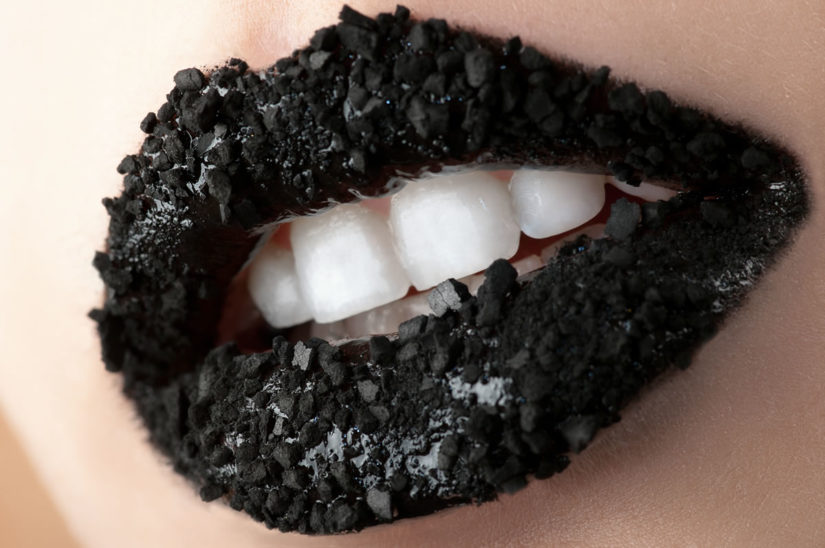 Our patients are asking us how we feel about the latest craze in the path to whiter teeth, and it's covered in a pitch-black paste. Bloggers and vloggers claim that brushing with activated charcoal is an all-natural way to remove surface stains caused by coffee, tea and wine without bleach or abrasives. To prove it, they’re flaunting soot-covered teeth straight out of a horror movie. The result? Fluorescent white teeth after as few as one use, proponents say.
While you may have used charcoal in your skincare and juice routine (see the
Our patients are asking us how we feel about the latest craze in the path to whiter teeth, and it's covered in a pitch-black paste. Bloggers and vloggers claim that brushing with activated charcoal is an all-natural way to remove surface stains caused by coffee, tea and wine without bleach or abrasives. To prove it, they’re flaunting soot-covered teeth straight out of a horror movie. The result? Fluorescent white teeth after as few as one use, proponents say.
While you may have used charcoal in your skincare and juice routine (see the